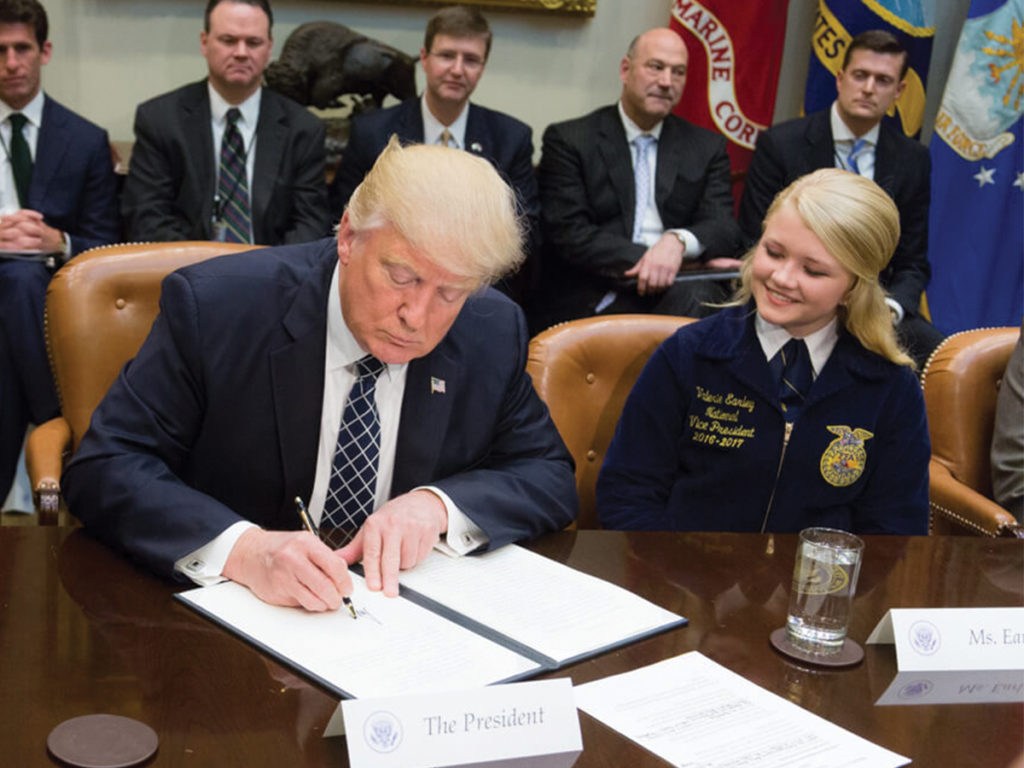
A significant aspect of President Donald Trump’s budget blueprint is its emphasis on improving our military’s defense at the cost of environmental, artistic and other programs that do not fit his “Hard Power” stance. Specifically, his goal is to increase military spending by 10 percent, raising it from $585 billion to $639 billion. Despite the fact that the U.S. spends more on its military than any other nation, he asserts that this increase is necessary in order to prepare our troops for the fight against the Islamic State group (IS). However, this focus on military prowess neglects the military’s soldiers and veterans.
Considering the primacy of warfare in Trump’s priorities and our nation’s tendency to honor soldiers (Veteran’s Day is a national holiday, after all), it is concerning that not many resources actually exist for Americans once they cease serving in the military. This probably would not be the case if the Department of Veterans Affairs (VA), the government organization in charge of providing soldiers with care once they return from war, actually had the resources to provide for them.
A few of the VA’s responsibilities include providing veterans with monetary compensation for their injuries and access to healthcare, combating veteran homelessness and performing mental health and traumatic brain injury (TBI) research in order to expand psychological care for former soldiers.
The final point is notable, because according to a report released by the Government Accountability Office in March, approximately 60 percent of troops discharged between 2011 and 2015 had been diagnosed with post-traumatic stress disorder (PTSD) and TBI. These conditions are debilitating, as they can prevent individuals from assimilating into civilian life properly and can adversely affect their relationships and perception of the world. Evidently, mental health is a pressing issue and a field that must be explored in order to apply the proper interventions to former veterans suffering from PTSD and other psychological disorders.
Besides mental health issues, many soldiers also return home with life-altering injuries such as amputated limbs and severe burns. Because of modern medical care, many soldiers are surviving injuries that would have been fatal many years ago. While this is fortunate, it is not actually helpful if they do not also have the resources or care they require in order lead normal and comfortable lives once they return home.
Unfortunately, many veterans must deal with being put on interminable waitlists to receive care for conditions that require urgent or frequent attention. Many end up acquiring more expensive care elsewhere, while those who can’t lose their lives waiting to receive the critical medical attention they need.
These are people who were courageous enough to endanger themselves for their nation’s well-being. It’s tragic that the very institution that they risked their lives for is not paying them back for their sacrifice. This disregard for the life of soldiers once they stop serving treats them as expendable — that they can be disposed of and forgotten about once they cease being useful.
Granted, there are soldiers who receive honors and recognition for their service. However, there are still a number of veterans who are homeless and struggling to find employment. Many of them suffer from crippling war-related injuries, mental and physical, that prevent them from obtaining a job that would provide them with the income that could help them escape poverty.
While Trump proposed an increase in the VA’s budget in his plan, it is meager compared to the Defense Department’s budget increase. Considering that the VA must serve not only recent veterans, but also those from the Vietnam War and other wars, it is questionable whether a 6 percent increase (around $4.4 billion) would be adequate to help the VA fulfill its diverse list of responsibilities.
Trump’s “Hard Power” and “America First” stances lack two key features: Sympathy and compassion for veterans. This emphasis on making our weapons bigger and stronger neglects the human aspect of war. In his remarks during the signing of the Veterans Choice Program and Improvement Act, Trump himself has acknowledged that veterans need to be “recognized” and that it is important to “take care of them properly,” it seems that, in his mission to make America “great” again, he has forgotten about the individuals who have physically dedicated themselves to trying to do so.








